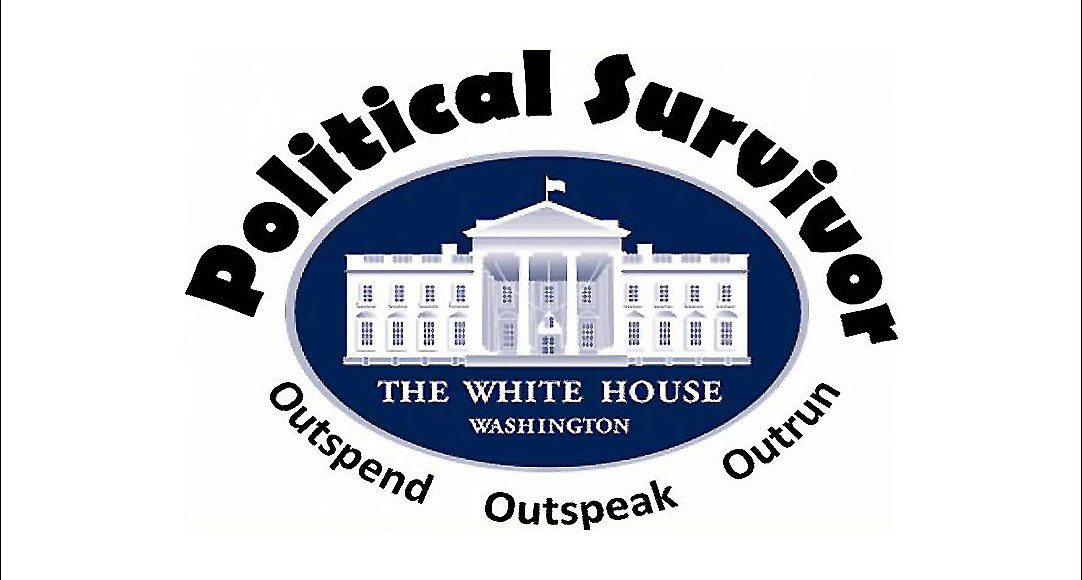On second thought, don’t flash that cash—I’ll get ill. The Koch brothers have reportedly committed $900 million, give-or-take, to Republican 2016 campaigns—and are currently auditioning candidates that they can buy with it. (More on that later—word is that they’ve already brought Scott Walker to the Returns window!) Thank you, SCOTUS and Citizens United. But wait: the New York Times has Team Hillary—and I include Super PACs not under her explicit control—aiming to raise an astonishing $2.5 billion. Assuming the other side will raise at least that much, we’re looking at a $5 billion election.
The one silver lining in this gigantic foul green cloud is that most of that sum will likely be paid to American workers, and spent in the U.S. Too bad it’ll mostly be in video and TV ads. Our on-death-watch newspapers could use some cash.
Let me drop another mind-blowing number on you: $960 million to be spent on web advertising alone for 2016. That’s over three times more than was spent in 2012. A billion just online!
The ability to spend nearly unlimited money on a campaign backfired on the Republicans in 2012, with Romney burying his primary opponents only to lose both the fundraising contest and the general election to the Obama machine. Hard to say what’s going to happen this time. Clinton has a machine too, but it isn’t the same machine, and it lost to Obama’s in ’08.
As the New York Yankees rediscover nearly every baseball season, you can’t buy a championship. But in elections, that saving grace only drives up spending. The logic is either “We lost because we didn’t spend enough money” or “We won, and we must spend more next time, to stay ahead.” It’s scarily like the Cold War, which the Soviets lost not because of ideology or passion, but because they couldn’t afford it. We can’t either, but that’s a wholly different rant.
The bottom line is that candidates never spend less than last time, and so money’s role as a necessary evil grows. And it gets worse for us little people: Just fulfilling their job descriptions, candidates spend a lot of time with people willing and able to pay $2500 (or lots more) for a seat at their dinner table. So whose issues do you think wind up at the front of a candidate’s mind?
If you thought “the One Percent” was an influential and exclusive club, consider a recent estimate that 42% of all 2012 campaign contributions came the wealthiest 0.01 percent of Americans. Doing the math, that is one percent of the One Percent. So you thought it was bad? No, it’s worse.
It was enough to prompt one man to fly under Washington, D.C. security radar and land his gyrocopter on the Capitol grounds. He carried a separate letter addressed to each member of Congress. The subject, in his own words: “…to present the solution(s) to the institutional graft” in Washington. Good luck with that, fella. What happened? He was arrested and I’ve got $10 in my pocket to bet that not one of his letters reached an actual member of Congress.
One final note on campaign spending: Carly Fiorina was right about one aspect of her deadbeat candidate status: it applies to a lot of candidates. Barack Obama’s 2012 campaign is still $2.3 million in debt. Newt Gingrich’s still-unpaid 2012 tab? More than twice that! But Fiorina is not off the hook. She paid herself a $1 million towards the $5 million she put into her campaign, stiffing people who worked for her—including $30,000 owed to the widow of a consultant. She owed all of them less than half of what she repaid herself, money she didn’t need. (Fiorina and husband Frank have a combined personal worth of some $30 million.) Nice people. Campaign workers, demand your wages upfront.
Let’s get back to bad press. Often as not, it really amounts to a candidate speaking truth to what he thinks is a narrow audience. Think Mitt Romney’s infamous 47% video. Scott Walker withdrew from the news media after several gaffes including comparing Wisconsin protesters to ISIS. But that was not his most surprising gaffe in an interview on Glen Beck’s talk show, Walker staked out a position against legal immigration, actually to the right of Ted Cruz. You read that right: he spoke against legal immigration. Apparently that did not sit well with the Koch brothers, who immediately reversed their notion that “Walker should be the nominee” the next day. I’d like to be happy about that turn of events. But for the Kochs to favor immigration policies that keep low-end labor cheap is completely logical. That’s an American tradition beginning with slavery and visited upon each new wave of immigrants (voluntary and otherwise).
Finally, Nate Silver’s excellent website FiveThirtyEight.com makes a strong case for Marco Rubio’s chances to actually capture the Republican nomination. He’s got appeal and consistency and stability. This article’s attention to detail and straightforward thinking is why you should respect their opinion. Its founder Nate Silver was right down to a few percentage points in 2008 and 2012.
FiveThirtyEight.com calls Rubio the first declared candidate with an actual shot at the Republican nomination. But beware, he’s got some extreme ideas too, which I’ll write about in the coming weeks and months.
Political Survivor #3





